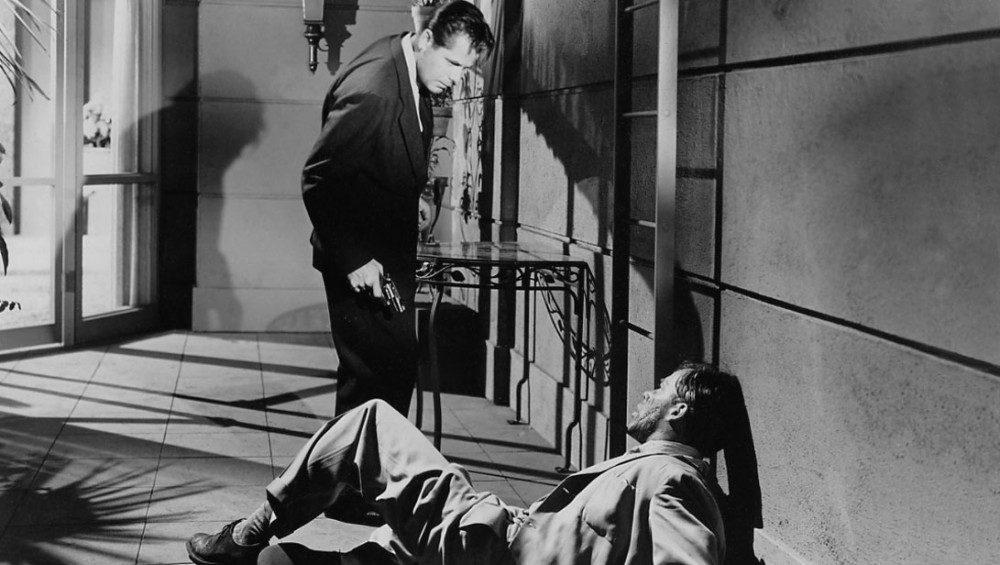
Released in 1953, a few years after the classic cycle of American noir hit its apex, The Big Heat both heightens and subverts genre form to thrilling effect. It’s not so much that Glenn Ford plays an honest cop with a bad attitude, wading in a sea of corruption, because a trope like that is a key part of Noir 101. The reason the film sticks out of the cycle is twofold: at the helm is Fritz Lang, chief chronicler of evil and miscreance both intentional and not, and its script, which gets a lot of mileage from exploiting the dangers of revenge-fueled tunnel vision, while turning established noir elements on their heads.
The Big Heat is a remarkably brutal film for its time: it literally starts off with a character, an ex-cop to be precise, shooting themselves in the head. It also features not one, but two incidents involving scalding-hot coffee being thrown in people’s faces. Much of the brutality of the film is implicit, but its impact is still tangible. It’s hard not to sit mouth agape as Ford pulls out his wife’s body from the fiery wreckage of a bomb-rigged car, presumably as punishment for an unheeded mob warming to mind his own business regarding the suicide of the ex-cop. This sets Ford off on a Dirty Harry-esque mission to right these wrongs, procedure and decency be damned.
The film is one of unblinking cynicism: being a straight arrow is just a delusion, and justice can’t truly be done without casualties. When you have nothing to lose, other people start losing too. A distrust of institutions is a common theme in noir, but there it’s not only the crime syndicate that’s poisonous here, it’s the police force, and even the honest cop. But mostly it’s the femme fatale trope that gets messed with to maximum effect. Traditionally, these characters lie, cheat, and steal to get a situation to break their way, leaving a trail of destruction in their wake if need be. In this film, that definition doesn’t really apply to any of the female characters; Jocelyn Brando is a bystander, Jeanette Nolan has no narrative need to gain standing, and Gloria Grahame becomes an ally in Ford’s crusade. If anybody, the femme fatale is Ford. He’s just as ruthless as the heavies, and puts the women he encounters in dire circumstances through a rage-induced mix of carelessness and inaction. In The Big Heat, the women hold all the cards, but Glenn Ford just barrels through and shoots up the table.
Which makes the ending all that more chilling (spoilers ahead, naturally, but how much can you spoil a noir film, really?); our man gets his job back, and the status quo has been restored. The story’s circle has been closed. No mention of the fact that Ford is responsible for a fair amount of collateral damage, all done without a badge on his chest. Business as usual. There’s this underlying notion that vengeance can lead to a Pyrrhic victory at best, and that an institution is willing to turn a blind eye to the gnarliest of happenings if it means nailing their man. All this gloom is bolstered by Lang’s crack direction, Charles Lang’s crisp cinematography, and top-shelf performances by Ford, Grahame, and head heel Lee Marvin. All in all, a brilliantly-rendered piece of bleakness.
—
The Big Heat is available on DVD from Amazon.
Directed by Fritz Lang; written by Sydney Boehm; adapted from the serial of the same name by William P. McGivern; starring Glenn Ford, Gloria Grahame, Lee Marvin, Jeanette Nolan, and Alexander Scourby; 89 minutes.



 Derek
Derek
 Isabelle
Isabelle